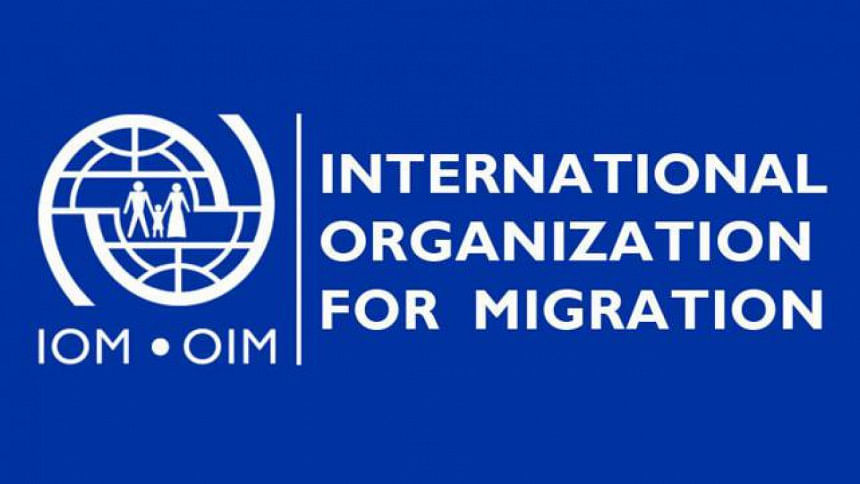Migrants, families need help now more than ever

UN Migration Agency, IOM, has called for supporting migrants and remittance-dependent communities affected by the coronavirus pandemic.
"Now more than ever we need to focus on supporting remittance-dependent communities who are impacted by the recession," said IOM Bangladesh Chief of Mission Giorgi Gigauri in a statement yesterday on International Day of Family Remittances.
Due to the economic and labour crisis created by the Covid-19 pandemic, hundreds of thousands of migrant workers are expected to return by the end of the year. Recession-related job losses will impact not only remittance-receiving households but their extended communities, IOM said.
The UN agency has urged communities to support the reintegration and combat stigmatisation of returning migrant workers to Bangladesh.
Fearing several lakh Bangladeshi migrants could return in the coming months, the government has announced Tk 700 crore for low interest loans to the returnees so they could start new businesses. Besides, the government also planned re-skilling of the jobseekers for overseas employment.
Activists say the amount is inadequate, and demanded that migrants and their families be incorporated in the social safety net programme for social and economic reintegration.
ECONOMIC RETURN ON MIGRATION LOWER IN BANGLADESH
Meanwhile, an IOM study finds the economic return on migration is lower in Bangladesh than the countries with a skilled-migrant workforce because the amount that unskilled and lower-skilled workers remit is much lower than that of skilled workers.
The survey report on Migration, Family Remittances, Assets and Skills Categories in Bangladesh conducted on 1,000 remittance-dependent households in 2019 across the country found an increase in skills corroborated to an increase in the amount remitted by up to US $255 per month between 2009 and 2019, it said.
"Migrants' skills determined how remittances were invested and saved, with skilled migrants requesting family members to invest remittances into savings accounts whereas unskilled migrants generally used remittance to pay off loans," the study said.
Higher skilled migrants were employed in better paid jobs and were more likely to send higher remittances for longer periods than lower skilled migrant workers, it added.
In 2019, $18.32 billion was remitted to Bangladesh, the third highest recipient of remittance in South Asia, by an estimated one crore Bangladeshi migrants.
Over 73 percent of remittances were sent from Gulf Cooperation Council countries, according to the Bureau of Manpower, Employment and Training (BMET).
The study found Bangladeshi migrant workers were overwhelmingly men (98pc), about 12 percent of migrant workers did not attend school at all and nearly 80 per cent did not continue studying after secondary school.
About 49 percent Bangladeshi migrants worked as employees for a firm and 26 percent as labourers -- daily wage (14pc), part time (12pc), and construction (15pc).
Dhaka and Chattogram divisions had the highest concentration of remittance-receiving households (76pc).
The survey found remittances were generally used to meet short-term needs and were rarely used to diversify assets or build financial resilience, which further increased the households' dependence on remittances.
"Low financial literacy of the migrants and their families placed them in a precarious situation in terms of income stability, remittance management, and assets building."
The report recommends investment in gender-responsive skills development, promoting financial literacy and remittance management capacity of households.
"There should be investment in education and skills upgrade so that lower skilled migrant workers can earn more and break the cycle of debt," the IOM study said.
It also recommended improving measures for debt management and formalising savings to mitigate vulnerability and promoting policies that increase women's financial inclusion.
Giorgi Gigauri said, "We need to support the government to prioritise skills development of migrant workers so they can increase remittance flow to Bangladesh."
"We also need to focus on providing financial literacy training, particularly to women, to improve productive investment of remittances and to build the resilience and financial independence of remittance-reliant households."

 For all latest news, follow The Daily Star's Google News channel.
For all latest news, follow The Daily Star's Google News channel. 



Comments